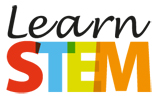 The Open University of the Netherlands (OUNL) was founded in 1984 as the Dutch university for open distance education. Soon thereafter, the OUNL’s Educational Expertise Centre was commissioned by the Ministry of Education to provide an innovative stimulus to Dutch Higher Education by carrying out research and development work on technology enhanced learning. The Open University of the Netherlands develops and provides open higher distance education and excellent international research. There is a special focus on the use of new ICTs and of innovative teaching and learning methods to provide effective, efficient, attractive and accessible lifelong learning facilities and education. The Open University of the Netherlands has 26,000 students and about 750 employees. The main campus is in Heerlen. Spread over the Netherlands there are 13 study centres and 3 support centres. There are also 6 study centres in Flanders.
The Open University of the Netherlands (OUNL) was founded in 1984 as the Dutch university for open distance education. Soon thereafter, the OUNL’s Educational Expertise Centre was commissioned by the Ministry of Education to provide an innovative stimulus to Dutch Higher Education by carrying out research and development work on technology enhanced learning. The Open University of the Netherlands develops and provides open higher distance education and excellent international research. There is a special focus on the use of new ICTs and of innovative teaching and learning methods to provide effective, efficient, attractive and accessible lifelong learning facilities and education. The Open University of the Netherlands has 26,000 students and about 750 employees. The main campus is in Heerlen. Spread over the Netherlands there are 13 study centres and 3 support centres. There are also 6 study centres in Flanders.
The OUNL is the internationally recognised Dutch University for Online Learning and is ranked as Top No.1 among all Dutch universities in the national rankings by the ministry as well as by the students for best education and service since several years. Within the OUNL, the Welten Institute is the unique Research Institute for Learning, Teaching and Technology combining and integrating expertise in the learning sciences and technology-enhanced learning (TEL). The Welten Institute is among the leading international research institutes in TEL with highest reputation and the biggest one in Europe in this field, mainly through the TELI research group which focus is on learning and teaching innovations in TEL environments.
The mission of the Welten Institute is to improve learning and competence building at school, at work, at home and on the move by combining state-of-the-art knowledge in the educational and learning sciences with the innovative power of new information and communication technologies. The Welten Institute has chosen the approach of the ‘ecology of education’: This means that the institute is not only active in the field of theoretical scientific research but also collaborates with users and partners in developing and implementing scientifically sound learning environments and other forms of open and innovative education and didactics to achieve impact in the application.
The research activities take into account the complexity of education and the use of the rapidly developing technologies plays an important part in them. The underlying thought is that the contact between educational science and educational practice is of vital importance for good educational research and therefore for the improvement of learning quality. Nevertheless the Welten Institute imposes on itself very stringent scientific demands: the results of its scientific activities have to be validated, have to be susceptible to generalization and have to find their way into authoritative (national and international) publications and educational systems.
In the past, the Welten Institute with its excellent research teams of around 80 researchers (thereof 60 professors and senior PhD researchers) has been an active coordinator and participant in numerous European and international research projects, also from FP5 to H2020 (e.g., Inspiring Science Education (ISE), Open Discovery Space (ODS), MOOQ, LinkedUP, LACE, Unfold, TENCompetence, LTfLL, GRAPPLE, idSPACE, Handover, PATIENT).
Key staff:
 Dr. Christian M. Stracke (Learn STEM coordinator)
Dr. Christian M. Stracke (Learn STEM coordinator)
